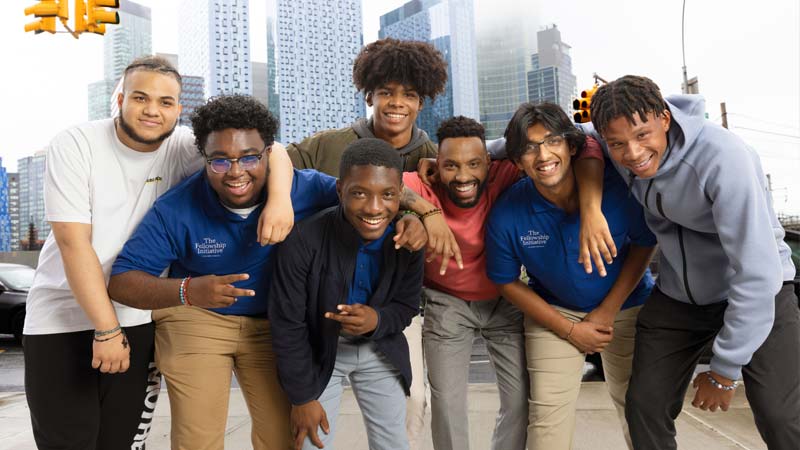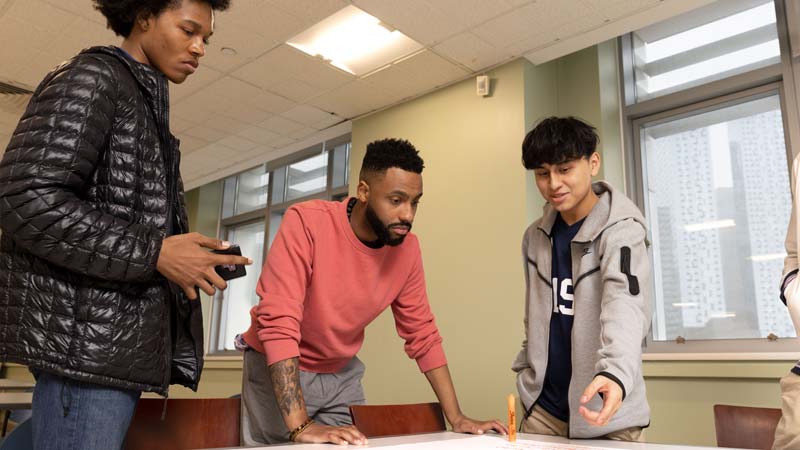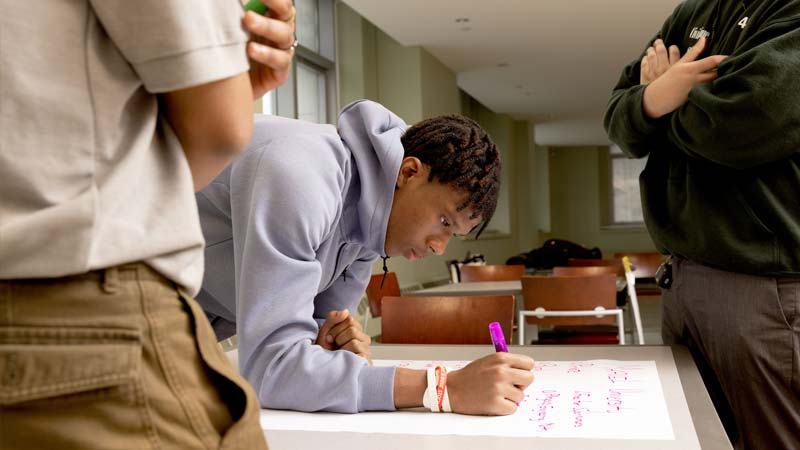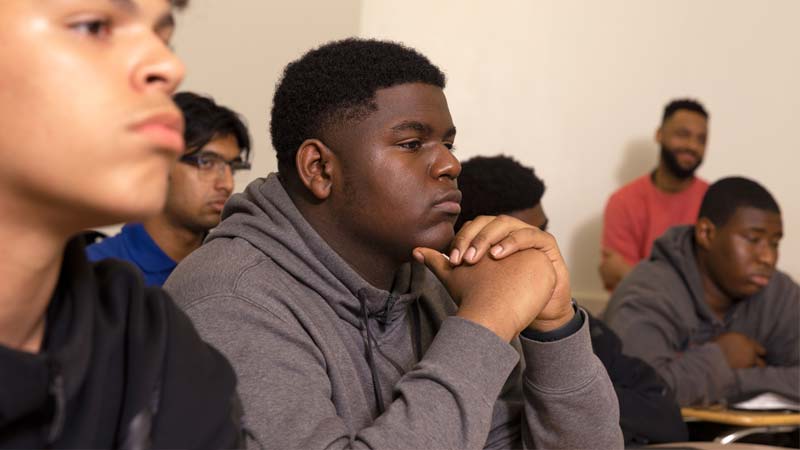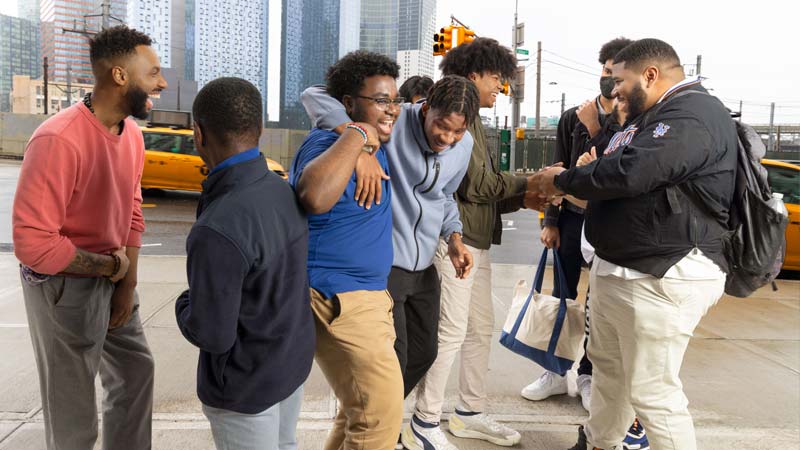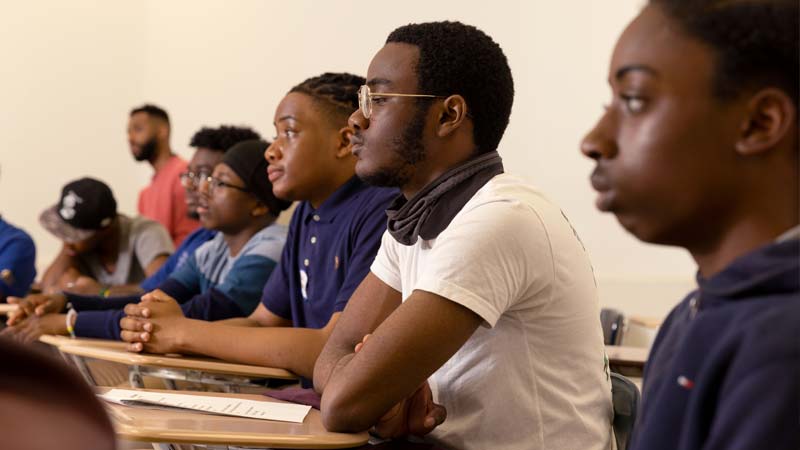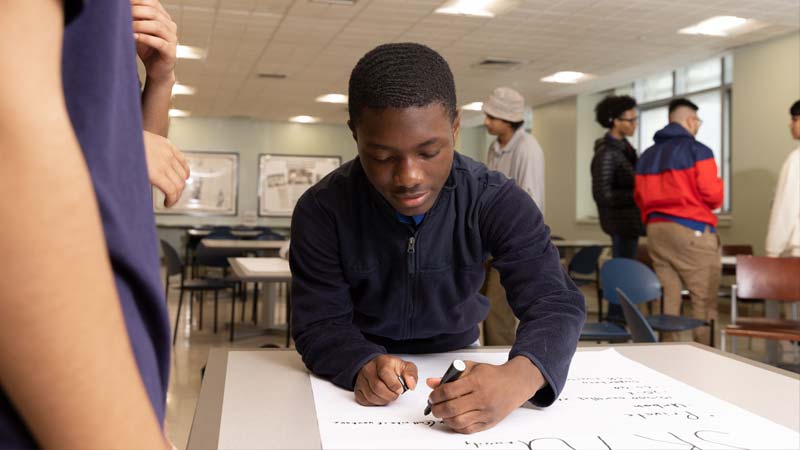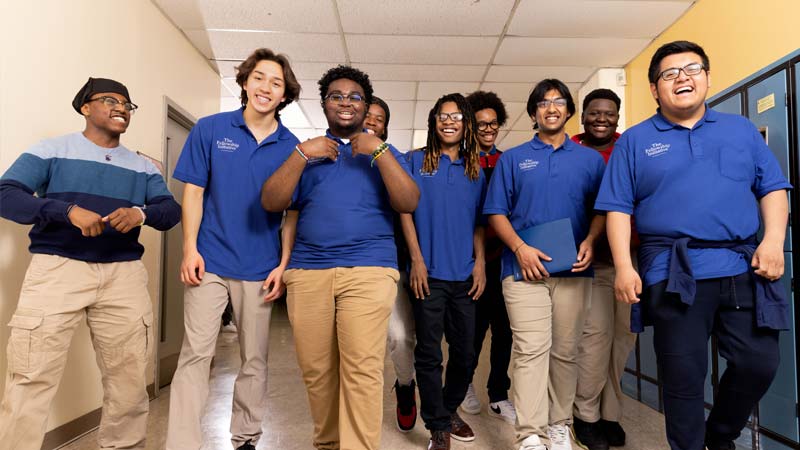Expanding beyond Bard
“Dariel and TFI came full circle when Brothers@—the national version of Brothers@Bard—began a workshop series for the program. Like the TFI program Dariel attended in high school, the workshops he conducted with Brothers@ gave young men of color the opportunity to discuss their shared life experiences—a process that, for many of them, inspired the personal statements they submitted for their college applications.
High school students in the Brothers@ program have an average graduation rate of 90 percent, compared to the national average of 59 percent. Meanwhile, the graduation rates for students in the Brothers@ college program in New York state averages 91 percent.
But even though Brothers@ has moved far beyond its origins in a dorm room at Bard, moving nationwide with over 200 students enrolled, its basic elements remain the same: It gives students a supportive mentor, helps them develop a sense of ownership in their lives and provides an emotional space where they can talk openly with their peers about what’s going on in their lives.
And their basic message has stayed consistent, too. “We're here to offer you the resources and the opportunities you need to be successful," Dariel says. "The world is yours and it's not confined to your block.”




